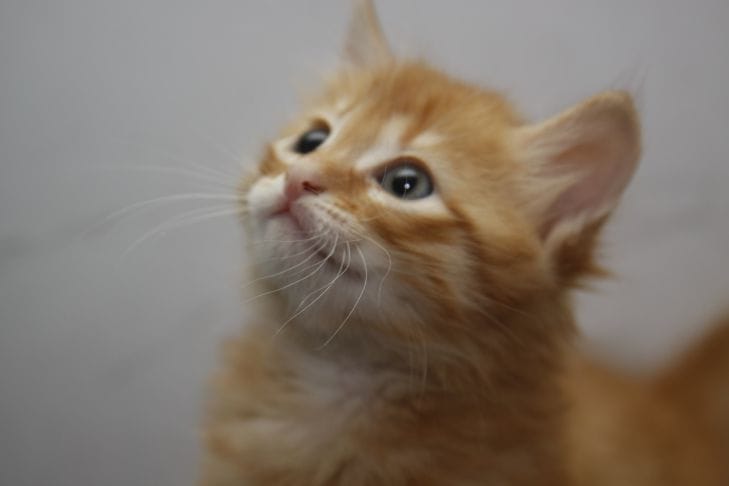- Cat behavior and connection with the owner
- Attachment to the owner and a sense of security
- Social Behavior of Cats: Interaction with Humans
- Feeding as an act of communication
- Reaction to stress and changes in the environment
- The Influence of Experience and Upbringing on Cat Behavior
- Psychology and health of a cat: what to do if the cat eats only in front of you
Why does a cat eat only in the presence of its owner: the mysteries of feline behavior and their special habits
Cats are mysterious and independent animals.
However, they may sometimes exhibit unusual habits, such as refusing to eat alone.
Why does a cat eat only in the presence of its owner, and what is behind this strange habit?
Cat behavior and connection with the owner
Cats are often perceived as independent and self-sufficient animals. Unlike dogs, they do not require constant attention and affection, and can also spend long periods of time alone.
However, there are a number of situations when cats begin to show dependence on their owners, especially during meal times.

Many owners notice that their pet eats only when they are nearby. What is behind this behavior?
First of all, it is important to understand that cats are very sensitive and emotional creatures. Their relationships with their owners are based not only on the need for food, but also on emotional attachment.
When a cat eats only in the presence of its owner, this may be due to several psychological and physiological factors.
Attachment to the owner and a sense of security
The main reason why a cat prefers to eat with its owner is a sense of security. Cats, like other animals, are vulnerable without guardians.
In the wild, predators wait for the right moment to attack, and cats, as descendants of wild cats, retain this instinct.
They cannot relax without confidence in the safety of the territory. The owner nearby creates a feeling of security and comfort, helping the cat to eat calmly.
Social Behavior of Cats: Interaction with Humans
It is important to remember that cats can perceive their owners as part of their “social” environment.
Cats are not the loners they are often portrayed to be. They are capable of forming close bonds with humans, especially if they are cared for from an early age.
Interaction with the owner, including moments of feeding, becomes an important part of the cat's daily life.
Sometimes a cat may expect its owner to be nearby when it eats, thus creating a kind of ritual.
Feeding as an act of communication
Another reason why cats only eat in the presence of their owner may be the need for additional interaction and attention. Feeding is not only a way to satisfy the cat, but also a moment of closeness.
The owner's gaze, voice or touch can become part of the feeding ritual. Such contact, even if not always conscious, brings emotional satisfaction to the cat.
Reaction to stress and changes in the environment
Cats are animals that are very sensitive to changes in their environment. Any changes, be it new furniture, smells or even a change of owner, can cause stress in the pet. This stressful state can manifest itself in a refusal to eat or a change in eating habits.
In the case of eating only in the presence of the owner, the cat may seek additional assurance that everything around is stable. The owner becomes a source not only of food, but also of emotional comfort.
The Influence of Experience and Upbringing on Cat Behavior
An important aspect is the cat's upbringing and experience from an early age. If the kitten is used to being fed while being near it, this can become a lifelong habit.
At such moments, food becomes associated not only with physical need, but also with emotional experiences, comfort, and the desire to have a "guardian" nearby. In the future, the cat can transfer this habit to adulthood.
Psychology and health of a cat: what to do if the cat eats only in front of you
If a cat eats only in the presence of its owner, it is worth paying attention to its health and psycho-emotional state.
This behavior may be caused by stress, anxiety, or a need for extra attention.
It is recommended to provide your pet with more privacy so that it feels independent and learns to cope without supervision. It is important to choose a safe and comfortable place for feeding.
Some cat owners begin using special training or toys to distract their pet from being overly attached.
Such activities help develop the animal's independence, which can influence its habits.
